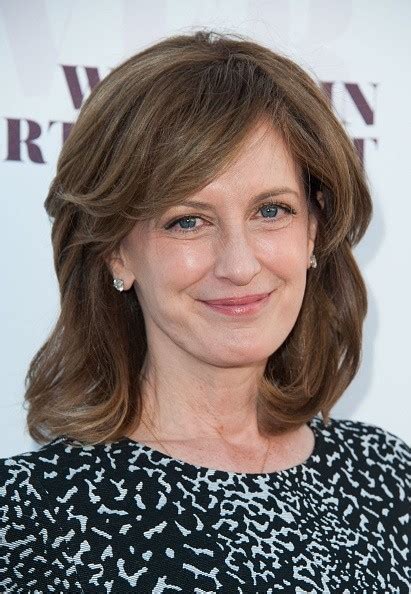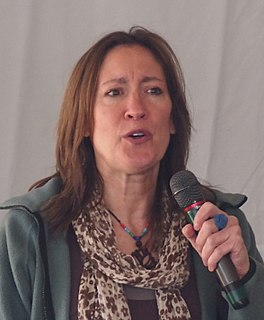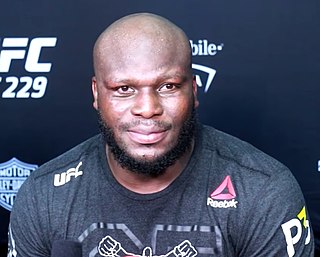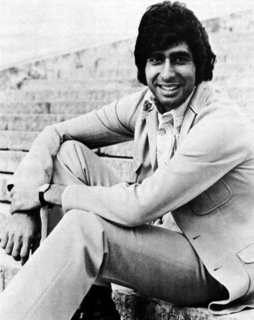A Quote by Malcolm Muggeridge
In my view, Jan Masaryk was thoroughly corrupt, who bumped himself off because he saw at last where his moral cowardice and ideological 'Playboyery' had led him. I vividly remember visiting him in Washington, fat, slightly tight, coming into the room looking like a broken-down butler with his master, the little Communist, Clementis, - and saying in a loud voice: 'Has anyone seen an Iron Curtain? I haven't.' Well, he has now.
Quote Topics
Related Quotes
Pages were always supposed to be off-camera - we were supposed to be invisible. But I had a moment where I saw a kid who was ready to flip himself out of the balcony, so I ran down and grabbed him and put him back in his seat. I remember the stage manager taking me aside and saying, "Can you please never do that again? I know you were saving his life, but we have you in the shot."
Often nothing keeps the pupil on the move but his faith in his teacher, whose mastery is now beginning to dawn on him .... How far the pupil will go is not the concern of the teacher and master. Hardly has he shown him the right way when he must let him go on alone. There is only one thing more he can do to help him endure his loneliness: he turns him away from himself, from the Master, by exhorting him to go further than he himself has done, and to "climb on the shoulders of his teacher."
Deng Xiaoping thought of himself as a great revolutionary and a great reformer. He had dismantled the Chinese communist management of the economy. In my next-to-last conversation with him, which was about six months before Tiananmen Square, he said to me that his aim would be the next phase to reduce the Communist Party to philosophical issues. And I said, "What's a philosophical issue?" And he said, "Well, like if we make an alliance with Russia." Given his view of Russia, that was not the likeliest thing that would ever happen.
And truly it demands something god like in him who has cast off the common motives of humanity, and has ventured to trust himself for a taskmaster. High be his heart, faithful his will, clear his sight, that he may in good earnest be doctrine, society, law, to himself, that a simple purpose may be to him as strong as iron necessity is to others!
Mo Willems was so helpful. I had met him a number of times, and I knew from his books how funny he was, of course, but it was really neat to be able to have his feedback. He's so great with comic timing. Working with him was like taking a master class in comic timing, because he could pinpoint right away if a section wasn't working. I remember him saying once, "No, you need a beat between this page and this page," and it was like, oh yeah, of course. I hadn't seen it, but being so good at what he does, Mo noticed it right away.
As a child, he had hardened his heart and learned to take their punches. He had learned to spit back and take down anyone who cast a jaundiced eye or who made a comment about either him, his mother, or his sister. He’d told himself that he didn’t need anyone’s love or caring. And so he had learned to live like a feral animal, always ready to strike out when someone tried to touch him.
In 2010, Strikeforce came to Houston, and DC was something like 5-0 or 6-0, and I'd seen him at the expo. I seen him walking around and I seen he had a pink cast on his hand, and I was like, this guy is way too fat... because he looked shorter and fatter. Because back then I was slim, I was like 235. So, I was like, man, I could take this guy.
If you saw Atlas, the giant who holds the world on his shoulders, if you saw that he stood, blood running down his chest, his knees buckling, his arms trembling but still trying to hold the world aloft with the last of his strength, and the greater his effort the heavier the world bore down upon his shoulders - What would you tell him?" I…don't know. What…could he do? What would you tell him?" To shrug.
His master’s pain was his pain. And it hurt him more for his master to be sick than for him to be sick himself. When the house started burning down, that type of Negro would fight harder to put the master’s house out than the master himself would. But then you had another Negro out in the field. The house Negro was in the minority. The masses—the field Negroes were the masses. They were in the majority. When the master got sick, they prayed that he’d die. If his house caught on fire, they'd pray for a wind to come along and fan the breeze.
I remember the day before my dad died, I was in a hospital room with him, and he had lived a long life. He was 94, and I helped him get up, and there were two windows separated by the partition. I took him to the first window, and he kind of found his way to the second window, and on the way there was a mirror, and he looked into it, and I saw through the corner of my eye, I remember the look on his face. What came over his face was "So I'm here. I've crossed that bridge."
Far away on the path we saw Sir Henry looking back, his face white in the moonlight, his hands raised in horror, glaring helplessly at the frightful thing which was hunting him down. But that cry of pain from the hound had blown all our fears to the winds. If he was vulnerable he was mortal, and if we could wound him we could kill him. Never have I seen a man run as Holmes ran that night.
The whiskey warmed his tongue and the back of his throat, but it did not change his ideas any, and suddenly, looking at himself in the mirror behind the bar, he knew that drinking was never going to do any good to him now. Whatever he had now he had, and it was from now on, and if he drank himself unconscious when he woke up it would be there.
A new danger now beset him [Grotius], the danger of becoming simply a venal pleader, a creature who grinds out arguments on this or that side, for this or that client: a mere legal beast of prey. Fortunately for himself and for the world he took a higher view of his life-work: his determination clearly was to make himself a thoroughly equipped jurist, and then, as he rose more and more in his profession, to use his powers for the good of his country and of mankind.
And how did little Tim behave?” asked Mrs Cratchit, when she had rallied Bob on his credulity and Bob had hugged his daughter to his heart’s content. “As good as gold,” said Bob, “and better. Somehow he gets thoughtful, sitting by himself so much, and thinks the strangest things you ever heard. He told me, coming home, that he hoped the people saw him in the church, because he was a cripple, and it might be pleasant to them to remember upon Christmas Day, who made lame beggars walk, and blind men see.

































